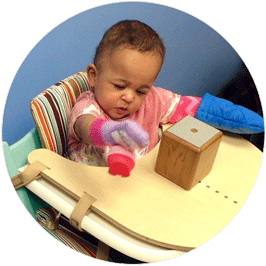 NCMRR supports the following training and career development opportunities for researchers and clinicians who intend to focus on medical rehabilitation topics.
NCMRR supports the following training and career development opportunities for researchers and clinicians who intend to focus on medical rehabilitation topics.
Individual Research Fellowships (F): NICHD supports fellowships under the National Research Service Award program for graduate students and postdoctoral fellows. These include:
- Individual Predoctoral M.D./Ph.D. and Other Dual Doctoral Degree Fellows (F30)
- Individual Postdoctoral Fellowships (F32)
Career Development (K) Awards: NICHD sponsors awards for senior-level postdoctoral fellows and junior faculty. These include Mentored Career Development Awards (K01, K08, K23, K25, K99).
- Please Note: K01 applicants must have clinical training in a rehabilitation-related profession (e.g., P.T., O.T., R.N., or speech and language pathologist), possess a doctoral level degree (e.g., Ph.D., D.Eng., D.Ed.), and be committed to a career as an independent investigator in medical rehabilitation.
Research Grant (R) Mechanisms: This key research opportunity for beginning faculty is intended to support both basic and clinical research from rehabilitation scientists who are establishing independent research careers.
- PAR-23-029: NCMRR Early Career Research Award (R03 Clinical Trial Optional)
Education Grants (R25): NICHD sponsors education grants for summer research experiences and methodologically oriented short courses.
Institutional Training Grants (T32): These awards are made to institutions to support groups of pre- and/or postdoctoral fellows, including trainees in basic, clinical, and behavioral sciences.
NCMRR also funds the following external programs:
- ReproRehab
seeks to build a sustainable national workforce of rehabilitation researchers equipped with basic data science skills to improve reproducibility in research. Program goals are to: implement an innovative, hands-on “bootcamp” for rehabilitation researchers to learn and integrate beginning data science skills into their own research; rapidly increase capacity and training for data science in the rehabilitation research community using a train-the-trainer model; and broadly disseminate data science resources curated specifically for rehabilitation researchers through a publicly accessible web portal.
- The Rehabilitation Medicine Scientist Training Program
(RMSTP) develops physician-scientists for successful careers in diverse aspects of rehabilitation research, such as the basic science of human cognition and movement, applied clinical studies, and health services research. Operated in collaboration with the Association of Academic Physiatrists, the RMSTP is open to physicians of all specialties pursuing research programs focused on human function, disability, and rehabilitation.
- The Training in Grantsmanship in Rehabilitation Research (TIGRR)
workshop, held by the University of Colorado Anschutz Medical Campus, provides expertise and support to help improve success of rehabilitation researchers in obtaining research grant and other funding.
In addition, NCMRR participates in other NICHD-wide training and career development opportunities. Visit Support for Training at Universities and Other Institutions (Extramural) for more information.
 BACK TO TOP
BACK TO TOP